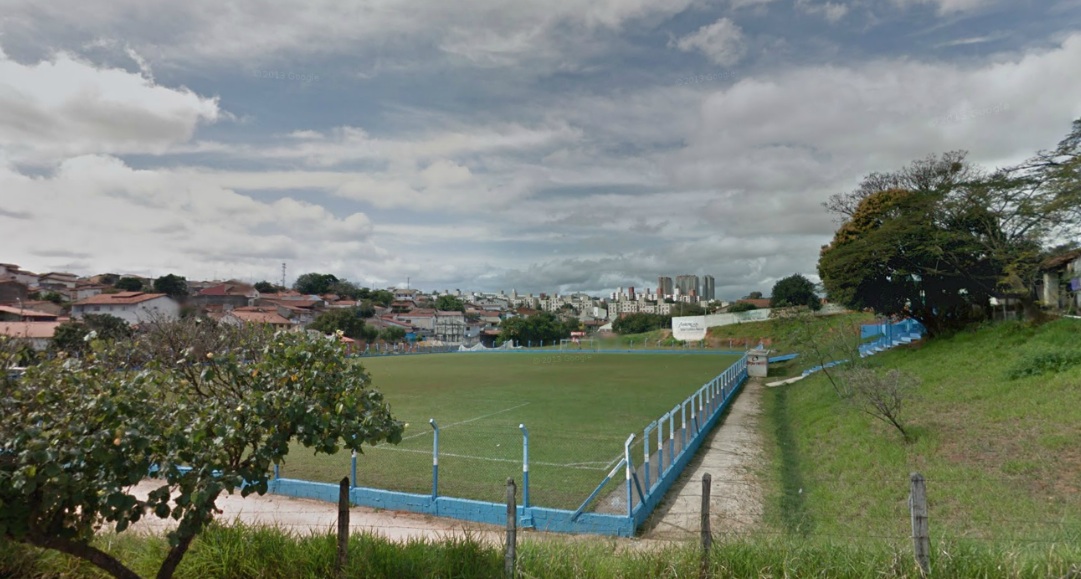
Raphael DaSilva would sometimes forego the nutrients of a meal because of his love for soccer.
When he was seven years old, each day between 1p.m. and just before nightfall, he and a district full of bright-eyed soccer extremists would kill the day by kicking a white ball around. The army of soccer buffs would assemble four boulders posing as goals on tar roads not much wider than two bike lanes. The ball would travel back and forth and run up curbs parallel to concrete compounds with wrought iron gates. Kids as young as five played with vigor and skill, attempting heel flicks and hip fakes as they tried anything to get one in between the pieces of rubble. This was a ritual that happened every afternoon in the sub tropical heat of Sorocaba, DaSilva’s hometown and a thriving industrial metropolis an hour west of São Paulo. DaSilva soon became proficient at signature soccer pivots and twists with the white ball. As he got older DaSilva graduated to playing for Sao Bento Sorocaba in the country’s U|15 and U|17 divisions; in university, he played futsal, a five-on-five variant of soccer, for four years.
For the first 22 years of DaSilva’s life, like many Brazilians, he absorbed soccer like our blood vessels absorb oxygen.
As 31 countries touch down on South American soil this week to kick off the 2014 World Cup in Brazil, die-hard soccer fans and amateur players around the world will be fixed to TV sets and parked inside outdoor cafes. Whether they’re rooting for their home country or an underdog, they will be part of one of the largest world events, an event that brings neighbourhoods and communities together synchronously. We know St.Clair and Corso Italia went berserk when Italy won the cup in 2006, as did pockets of Toronto when Spain claimed the title in 2010—but what does the World Cup really mean to Torontonians?
In 2004, DaSilva was recruited by Toronto’s King George International College after he sent them his highlight reel video. It was during his second season, in a match for Stellar Brazil against Waterloo, that the right midfielder ruptured his ACL and decided to call it quits. Thinking he could help develop the sport using the knowledge and training techniques that he had learned in Brazil, DaSilva founded the Brazilian Soccer Academy in 2010. The academy currently has 120 members and is divided into beginner and competitive levels.
“Soccer is important to Brazilians. It involves playing with heart and can be played for the rich and the poor, for the white and the black,” says the 33-year old. “Soccer is also a way that Brazilians get away from daily problems.”
He adds, “It’s very different from Toronto. Here, we don’t see many kids playing in the streets. If you walk around, you will find some, but nothing compared to Brazil. That warm and welcoming environment doesn’t happen here.”
In 2006, I was working for an Italian property developer named Sal. It was my job to tend to the 20 townhouses he owned around the city in places like Dovercourt and College, Dupont and Bloor and Bathurst and Queen. That year Australia made it to the World Cup round of 16 against Italy. So Sal picked me up around noon and took me to his house at Wilson and Bathurst to watch the game while we shared beers. Before the game, Sal said, “You guys have no chance.” And with that the ribbing was set to it’s-going-to-get-ugly-in-here.
There we were: two guys that really didn’t know each other yelling at the tiny antenna TV with each bad call or near miss. The Aussies pressed the Italians hard; both teams had their chances. The game went ticking into injury time when Fabio Grosso keeled over inside the box and was awarded a penalty. The Italians converted and Italy advanced through to the quarter finals and eventually won the World Cup. Sal was adamant that the Italians were just toying with the Socceroos the whole match to make it look like a close game. Maybe he was right, but nonetheless that match brought us closer together.
In Toronto, World Cups unite people and communities. Those TV moments lead to street closures, celebrations and fans hanging from car door windows singing national anthems. Out of the 32 World Cup teams, 20 are represented by a club, team or league in the city. Most of these city teams are formed by landed immigrants—now residents or Canadians—wanting to connect with locals through teaching their country’s own familiar style and culture of soccer.
Japanese-born Reo Waeanabe, 39, moved to Toronto nine years ago from Tokyo where he says soccer is hugely popular because of its team-first mentality. He amassed a group of soccer junkies and started Team Japan in 2006 and played in the Asian Community Games. The club has since evolved into the Japanese Football Club of Toronto (JFT). It club has more than 50 members, a youth soccer program and four teams.
“Soccer changes people’s lives. I’ve made many friends because of soccer. You don’t even have to speak when you play soccer. You speak the same language when you play soccer,” he says. “It teaches you how to be disciplined, how to be better.”
In Asia, there are an estimated 85 million male and female registered soccer players. The region’s love for the sport borders on fanatical, though Waeanabe says that there’s less pressure to become a professional than in countries like Brazil.
“In Japan, soccer equals a risky career path. You can get injured and your career is over. Most people want a solid job to raise a family,” he says. “Soccer is not a one man sport: it requires teamwork and teamwork is the Japanese spirit. There is no Ronaldo in Japan, so everyone works as a team.”
Japan is in Group C along with Ivory Coast, Colombia and Greece. Bookmakers have them at 150-1 odds on to win the World Cup. Waeanabe is hopeful they can at least make it into the round of 16 and win one more game after that.
“I don’t want to be heartbroken. If we pass the group round I will be satisfied. If we lose, then I will be shattered,” he said.
The top image shows the field in Sorocaba where DaSilva spent countless hours playing soccer.
____
Justin Robertson is a contributor to Toronto Standard. Follow him on Twitter.
For more, follow us on Twitter and subscribe to our newsletter.














